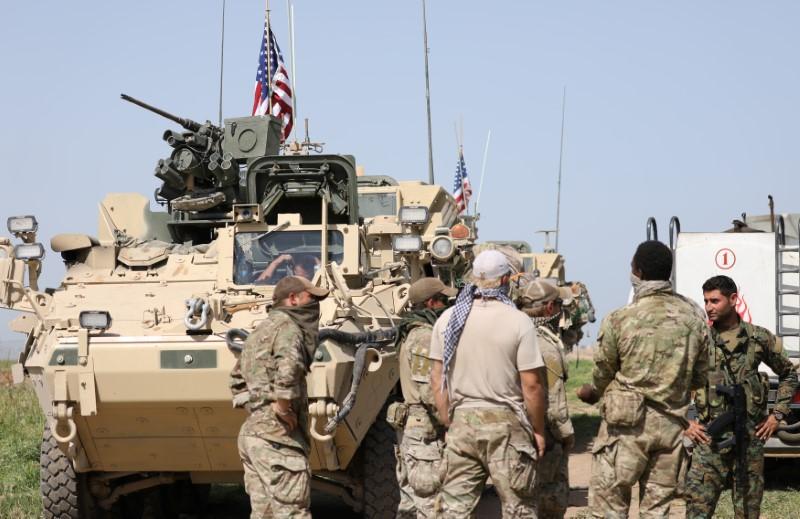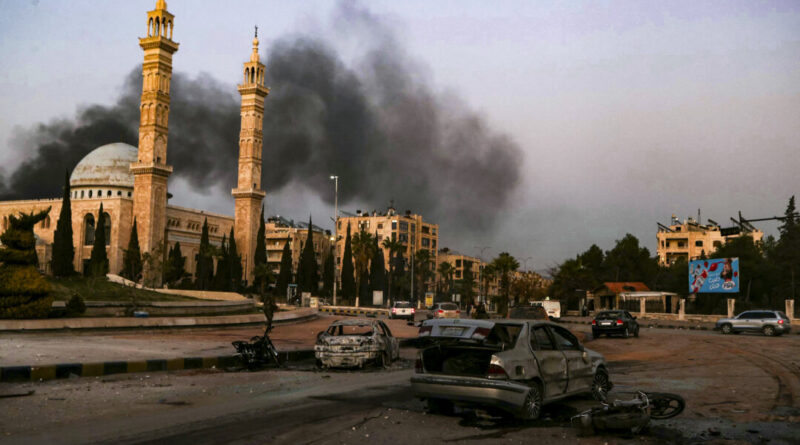Speculation Arises About Turkish Intentions in Syria Following Aleppo Offensive
At the forefront of the conflict-ridden Syria are multiple converging conflicts amidst increasing regional tensions.
The recent offensive in northwestern Syria by armed groups opposing Damascus has brought to light questions about the involvement of neighboring Turkey, which cut ties with Syria’s government in 2011.
Ankara has maintained a veiled stance on its participation in the offensive, where militant factions, led by the terrorist organization Hayat Tahrir al-Sham, made significant advancements in Aleppo, seizing vast areas from Syrian government forces.
This offensive, launched from Syria’s Idlib province, where Turkey, a long-standing NATO member, has a military presence and significant influence, has been observed closely by analysts.
“Since Turkey oversees developments in the Idlib conflict-free zone, the parties involved in the Astana process [Russia and Iran] hold Turkey accountable for these developments,” said Aydin Sezer, a Turkish political analyst.
Even if external forces were behind the offensive, as asserted by Russian and Iranian officials, Sezer emphasized that Turkey cannot evade responsibility for the situation.
On Nov. 27, heavily armed anti-government militants surged into Aleppo province from Idlib, catching Syrian government forces off guard.
“The Syrian government army, backed by Russian aerospace forces, is continuing its operation to repel terrorist aggression in Idlib, Hama, and Aleppo governorates,” stated a senior Russian official to TASS news agency on Dec. 2.
However, this offensive marked the most significant territorial loss for the Assad government in years.
Since 2020, groups opposing Damascus have been largely confined to Idlib province, where a “de-escalation zone” was established five years ago based on an agreement involving Turkey, Russia, and Iran.
Russia maintains a substantial military presence in Syria, including air and naval bases, to support Damascus against what they term as “foreign-backed terrorists.”
Damascus is aligned with Iran and Lebanon’s Hezbollah, both of which also maintain forces in Syria.
In contrast, Turkey, sharing a border with Syria, has consistently supported anti-Assad armed groups since the conflict began over a decade ago.

An anti-government fighter fires into the air in Aleppo, Syria, on Nov. 30, 2024. Bakr Alkasem/AFP via Getty Images
Strange Bedfellows
The attack on Aleppo was led by Hayat Tahrir al-Sham (HTS), formerly known as the Nusra Front, an ideological offshoot of ISIS and Al-Qaeda.
Considered a terrorist group by all parties involved, including the United States, which has troops in eastern and northeastern Syria, HTS spearheaded the assault on Aleppo.
“Despite the statements attributing the Aleppo attack to the ‘opposition,’ Turkey designated HTS as a terrorist group in 2018,” Sezer noted.
“Yet, for some reason, it avoids calling it a terrorist organization,” he remarked.
“At least Turkey is aware of these developments,” Sezer added, stating that Ankara appears uncertain about the future outcomes of the situation.
“The rebel group leading this advance—HTS—is officially designated as a terrorist organization by the United States,” he informed CNN on Dec. 1.
“So we have concerns about the intentions and goals of that organization,” Sullivan expressed.
“Simultaneously,” he added, “we do not lament the pressure faced by the Assad government—supported by Russia, Iran, and Hezbollah.”
Idlib also accommodates several “moderate” armed anti-Assad groups receiving Turkish support.
Damascus and its allies regard all these groups as “foreign-backed terrorists” and have frequently clashed with them in the past.

Turkey-backed Syrian fighters head to an area near the Syrian-Turkish border north of Aleppo on Oct. 8, 2019. Nazeer al-Khatib /AFP via Getty Images
Broader Conflict
The offensive last week coincided with significant events in the region, including an Israel-Hezbollah ceasefire, which may have triggered the attack on Aleppo.
“HTS, with some support but not under Turkey’s control, saw the weakening of Hezbollah, Iran, and Russia in Syria—particularly following the Israel-Hezbollah ceasefire—as an opportunity to launch a long-planned offensive,” explained Ambassador Matthew Bryza, a former White House and senior State Department official.
In his statements to CNN, Sullivan pointed out that Washington was “not surprised by the rebels’ attempts to exploit a new situation where the Syrian government’s primary supporters … were preoccupied and weakened by conflicts and events elsewhere.”
“Given the activity in Syria following recent events in the Middle East, Ukraine, and other places, it is a natural consequence of these adversaries finding themselves in a weaker strategic position,” Sullivan added.
Sezer also indicated that the Aleppo offensive was tied to broader Middle Eastern developments, where Israel has been engaged in a conflict with Iran and its allies, including Syria, for over a year.
“The events in Syria are directly aimed at undermining Iran’s influence,” he stated. “This is closely intertwined with Lebanon and Hezbollah.”
On Dec. 2, Iranian Foreign Minister Abbas Araqchi visited Ankara to discuss unfolding events in northwestern Syria with his Turkish counterpart Fidan.
During a joint press conference, Araqchi described their meeting as “constructive,” acknowledging “differences” between Tehran and Ankara.
He reiterated accusations that Israel and the United States played a significant role in the Aleppo offensive last week.
On his part, Fidan dismissed claims that the offensive resulted from covert “intervention” by foreign adversaries of Iran and Syria.

Kurdish YPG fighters with U.S. troops in the Syrian town of Darbasiya near the Turkish border on April 29, 2017. Rodi Said / Reuters
Colliding Crises
This week, a distinct offensive was launched from areas north of Aleppo by the Turkey-backed Syrian National Army (SNA), another anti-Assad armed force previously known as the Free Syrian Army.
According to a report by Turkey’s Anadolu news agency on Dec. 1, SNA fighters secured several towns in Aleppo, including Tel Rifaat, from the YPG, the Syrian offshoot of the Kurdistan Workers Party (PKK).
Considered a terrorist group by Ankara, Brussels, and Washington, the PKK has waged an armed insurgency against Turkey for four decades, targeting both military and civilian sites.
In recent times, Turkey has conducted multiple offensives into northern Syria and Iraq with the aim of “neutralizing” the PKK and its Syrian counterpart.
Sezer highlighted that the SNA’s latest operation against the YPG, backed by Turkey, is being portrayed as completely distinct from the Aleppo offensive last week.
“This narrative garners consensus in Turkish public opinion, viewing the attacks as legitimate,” he mentioned.
“Turkey’s sensitivity towards Tel Rifaat under YPG control has been evident for some time,” Sezer added.
Bryza suggested that while Ankara may not have endorsed last week’s offensive, it seems to be leveraging the situation to weaken the YPG/PKK and push them east of the Euphrates, a longstanding objective.
Further complicating matters, the YPG is a key element of the Syrian Democratic Forces (SDF), a U.S.-backed militant group tasked with combating ISIS in Syria.
On Dec. 3, Syria’s state-run SANA news agency reported that government forces and allied militias repelled an attack by U.S.-backed SDF fighters in Syria’s eastern Deir al-Zor province.
At the time of publishing, The Epoch Times could not independently verify the claims made by the news agency.
Reuters and the Associated Press contributed to this report.



